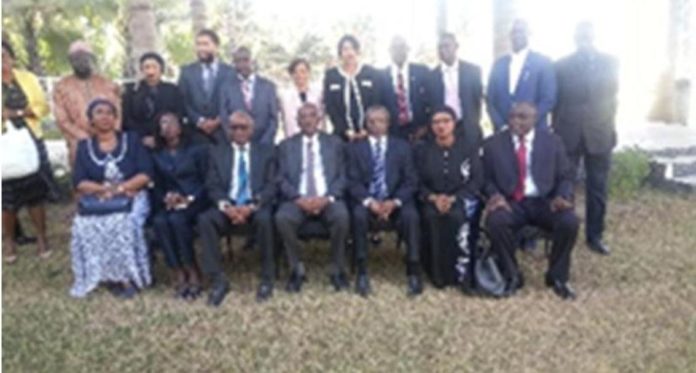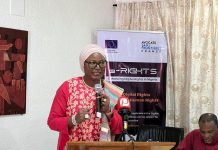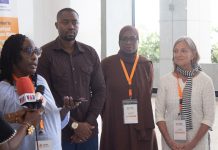By Nelson Manneh
The Institute of Human Rights and Development (IHRDA) in collaboration with the Gambian Judicial Training Institute (JTI), on Wednesday 10th January 2018, commenced a two day refresher training session for Judges.
In her welcome remarks Hon. Justice Naceesay Salla-Wadda, the Chairperson of the Institute of Human Rights and Development, said the refresher course for Judges falls within the mandate and framework of the IHRDA’s resolve to contribute it’s quota in strengthening the capacity of the Gambian Judiciary and to raise the awareness of Judicial officials to some of the international and regional human rights conventions and treaties, in addition to the Gambia’s obligations in upholding and respecting its international human rights obligations, as well as the application of international human rights laws in our domestic settings.
“The importance of the Gambia’s international human rights obligations and the application of international law within the Gambia’s domestic settings cannot be over emphasised. It is at this crucial stage where we as Judges have an important role to play in the interpretation and application of relevant international and regional conventions and treaties and thus the importance of this refresher course for all of us,” she said.
Mrs Sallah-Wadda said it is important to note that the Republic of the Gambia has done relatively well in having very progressive laws that are as a result of the Gambia ratifying and domesticating key International and regional treaties, some of which include the Children’s Act 2005, the Women’s Act 2010, the Amendment of the Women’s Act contained in Act No.11 of 2015 prohibiting Female Genital Mutilation, just to name a few.
“Despite these significant strides, there is still a challenge in the use of these treaties and laws in Gambian courts in terms of enforcing human rights provision that are provided for within the treaties that the Gambia has domesticated. And this is why we as Judges, have a very crucial role to pay in addressing these shortcomings, “she noted.
The Hon. Chief Justice Hassan B. Jallow who dilated on the application of international law in the domestic settings said ‘‘we must try and live individually in order to reach the developing standard particularly in the areas of human rights.” He said in the 2018 budget for the Judiciary, there has been a significant increase in the funds allocated by Government and that part of it will be used to organise a number of training programmes across the board in the sector.
The Hon. Chief Justice dilated that in the past, domestic laws were much more important than the international laws and the primary source of those laws were the Municipal laws. “Things have changed progressively as international laws are expanding,” he said. Chief Justice Hassan B. Jallow said in the case of international criminal justice, most of the obligations are created by international laws and they are enforced by international laws irrespective of what your Municipal laws are; that there are lots of challenges the Judiciary is faced with, ranging from theoretical to the hearing of cases.
“When you look at the Constitution of the Gambia, Section 7 states what the laws of the Gambia are and do not make any reference to the international laws. The only reference of the law would be the law of the legal application Act cap 5,” he said. He said in some countries they take the bold step of integrating international laws and making it applicable to their countries. “It is important for us to try to apply the principles of international laws particularly those related to human rights. A Judge who is sitting on a case is bound by the law of the country,” he noted.



















